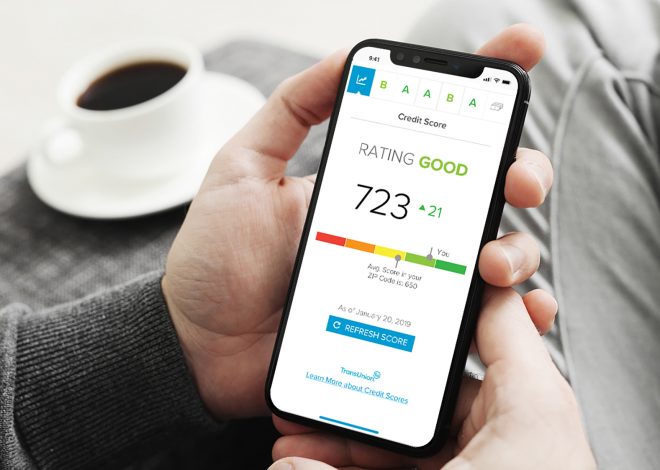Tips for Building Credit from Scratch
Establishing a solid credit history is essential for financial independence and future borrowing opportunities. Whether you’re a young adult just starting your financial journey or someone who has never used credit before, building credit from scratch requires understanding key principles, responsible financial habits, and strategic planning. This article provides comprehensive tips and strategies to help individuals build credit effectively and responsibly.
Understanding Credit Basics
Credit is a financial tool that allows individuals to borrow money or access goods and services based on their promise to repay the borrowed amount, usually with interest. Building a positive credit history demonstrates to lenders and financial institutions that you are a responsible borrower capable of managing debt. Key components of credit include:
- Credit Reports: Detailed records of your credit history, including accounts, payment history, balances, and inquiries. Credit reports are maintained by credit bureaus (e.g., Equifax, Experian, TransUnion) and used by lenders to assess creditworthiness.
- Credit Scores: Numeric summaries (e.g., FICO score, VantageScore) based on credit report data that reflect your credit risk. Higher scores indicate lower risk and better creditworthiness, influencing loan approval and interest rates.
Tips for Building Credit
Apply for a Secured Credit Card:
A secured credit card requires a cash deposit as collateral, typically equal to the card’s credit limit. Use the secured card responsibly by making small purchases and paying off the balance in full each month. Over time, responsible use can help establish a positive credit history.
Become an Authorized User:
Ask a family member or close friend with good credit to add you as an authorized user on their credit card account. As an authorized user, you can benefit from their positive payment history and credit utilization ratio, contributing to your own credit profile.
Explore Credit Builder Loans:
Credit builder loans are designed to help individuals build credit. Unlike traditional loans, the borrowed funds are typically held in a savings account or certificate of deposit (CD). As you make monthly payments, the lender reports your payment history to credit bureaus, gradually improving your credit score.
Pay Bills on Time:
Consistently pay bills, rent, utilities, and other obligations on time to establish a history of responsible payment behavior. Payment history is a significant factor influencing credit scores, demonstrating reliability and financial discipline to potential lenders.
Keep Credit Utilization Low:
Maintain a low credit utilization ratio by using only a small percentage of your available credit. Aim to keep balances below 30% of your credit limit to avoid appearing overextended to creditors.
Monitor Your Credit Report:
Regularly review your credit report for accuracy and potential errors. Dispute any inaccuracies promptly with credit bureaus to ensure your credit information reflects your true financial history.
Apply for Credit Wisely:
Limit credit applications to avoid multiple inquiries, which can temporarily lower your credit score. Research and compare credit card offers or loan options to find products suitable for your financial situation.
Establish Stable Employment and Residence:
Lenders may consider stability in employment and residence as indicators of financial responsibility. Maintain consistent employment and residential history to strengthen your creditworthiness over time.
Long-Term Credit Building Strategies
Diversify Credit Types:
As your credit history matures, consider diversifying credit types, such as installment loans (e.g., auto loans, student loans) and revolving credit accounts (e.g., credit cards). A diverse credit mix demonstrates your ability to manage different types of credit responsibly.
Avoid Closing Old Accounts:
Keep old accounts open to maintain a longer credit history, which can positively impact your credit score. Closing accounts prematurely may reduce your overall available credit and average account age, potentially lowering your credit score.
Seek Professional Guidance:
Consult with a financial advisor or credit counselor for personalized guidance on credit building strategies, debt management, and improving financial literacy. Professional advice can help you navigate complex financial decisions and achieve long-term financial goals.
Building credit from scratch requires patience, discipline, and a proactive approach to financial management. By understanding credit fundamentals, adopting responsible credit habits, and leveraging strategic credit-building tools, individuals can establish a strong credit history over time. Building good credit opens doors to better borrowing terms, lower interest rates, and increased financial opportunities. Whether you’re aiming to qualify for a mortgage, finance a car, or secure favorable insurance rates, investing in your creditworthiness today can lead to greater financial flexibility and stability in the future. Implement these tips consistently, monitor your progress, and prioritize financial responsibility to build a solid foundation for your financial future. With dedication and informed decision-making, you can build and maintain excellent credit that supports your personal and professional aspirations.




